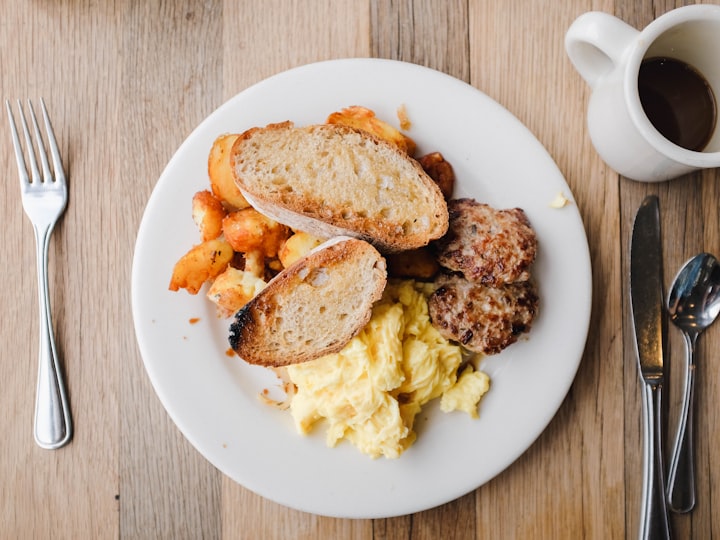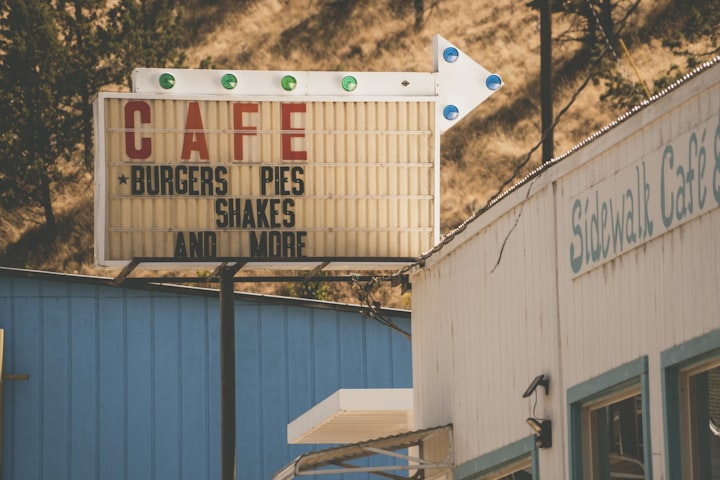Let's Get Breakfast Straight
You Do Actually Need It
First thing’s first: I am not a dietician, nutritionist, or any other kind of healthcare professional. I have worked in Eating Disorder recovery for three years now in an administrative capacity, but my education around the subject is probably greater than the average person. That being said, I am a person who eats food and who can read resources, so the following is my interpretation of data and understanding of the importance of food.
There has been a trend lately where people my age (young millennials and older gen-z’ers) have been joining a bandwagon of denouncing breakfast as a made-up notion of capitalism invented to get you to buy and eat extra food that you don’t need. And, along the same note, eating breakfast, lunch, and dinner, or just three structured meals in a day, is capitalist nonsense.
I’ve seen Tweets from friends, friends of friends, or sometimes even just strangers showing up on my timeline, trying to convince followers that breakfast isn’t necessary and you should just wait for hours after you wake up to eat until you’re really, really hungry. Their logic is that because certain breakfast foods were invented and marketed to be specifically eaten in the morning, breakfast is actually a sham. Only part of that is true though.
The history of American breakfast as we know it now is an interesting one. Early civilizations did not necessarily have this routine meal worked into their day, as food was expensive and eating as regularly as we do now would have been a luxury. We know now, of course, that folks from the medieval era were not beacons of health: they did the best they could with what they had, but that still often led to famine and incurable disease.
As societies began developing and similar routines became common for the majority of people, eating a meal in the morning became more and more common. A whole day of work often required the fuel from a sustainable meal in the morning, and the practice became quite common. The contents of the meal were largely not unique, and mirrored any other meal that someone would eat throughout the day.
It was capitalism and Western prudishness that changed the way Americans perceive breakfast for good.
In the 1890s, John Harvey Kellogg invented Corn Flakes in an attempt to provide a bland breakfast to anyone experiencing any kind of lustfulness. He believed that flavorful breakfasts increased sexual desire and sought to put an end to that with his new breakfast cereal. While his efforts were (of course) not very successful, the cereal sold well to the public and opened up an opportunity for lucrative business. Thus, Kellogg’s cereal became a household name and proved there was a market for food aimed at one specific meal.
Since this kind of marketing worked, food companies and fast food restaurants snatched up the opportunity. Now we see advertisements for cereals, pastries, sausages, bacon, pancakes, protein bars, and God only knows what else specifically for breakfast food. In the 21st century, though, we have grown to reject capitalism and, therefore, might want to reject breakfast.
But we’re not in the medieval ages anymore, folks - fueling your body is not a crime against humanity.
Eating breakfast within a certain time frame of waking up, usually 1-2 hours depending on the person, has been scientifically shown to have a myriad of health benefits. A study from NCBI shows that some of these benefits include increased cognitive function, healthier food choices, and even an increase in regular exercise. The study also states that protein in the morning can help kickstart your energy levels for the day and keep you from getting ferociously hungry in the middle of the day, which can lead to overeating the next time you eat.
For some people, they will skip breakfast, get very hungry as the day continues on, but then restrict their next meal intake to that of a “normal” or smaller size in an effort to avoid the overeating response. This can be all well and good for some people if it fills them up well, but for many this repeated behavior can elicit a starvation response, where the body thinks that it’s not getting enough nutrition and will adapt the metabolism to match the amount of (or rather lack of) food coming in. This may sound extreme, but the wellness industry and diet culture that we live in will have people believing that fewer meals throughout the day will make your body better (but that’s a conversation for another time). Do a Google search for “skip breakfast lose weight” (if this is a safe thing for you to do) and you’ll see how badly diet culture wants you to adapt yourself.
The opposite (and healthier) response to this is to just listen to your body and eat when you know that you need to. This is called intuitive eating, and it’s something that can be very difficult for people who believe that their meals should be rigid and contained to restricted hours of the day. When a body that isn’t in or on its way into starvation response wakes up in the morning, it will almost always be hungry - there’s been no food intake for 7-9 hours, blood glucose is low, metabolism hasn’t been jump started, and brain function is foggy. It is normal to be hunger and normal to honor that hunger.
You’re likely to start feeling hungry again in a few hours, which is, once again, very normal. Eating breakfast doesn’t make all your hunger go away until the next meal, it just signals to your body that food is available, that hormones can be produced as normal, and that your metabolism has something to fuel it throughout the day.
If you feel like you want to start trying to incorporate breakfast and smaller snacks throughout the day, but don’t ever feel hunger at the right times, there are some excellent resources on mechanical eating on the internet that can be used as helpful guides. Mechanical eating is the first step to intuitive eating, where you have a set schedule for food that you follow whether you’re hungry or not, in order to restore your body’s hunger cues. Once those cues start coming back, you can work on eating whenever you feel them and start working on an eating cycle that feels good for you.
Once again, I would like to emphasize that I am not a healthcare professional or giving medical advice to anyone. Rather, I’m here to point out that breakfast can and should be a part of your day, and denouncing it because of capitalism is based purely in myth.
About the Creator
Emm Danielle
Minneapolis, MN transplant with an MA in English Literature, I'm here to write about anything and everything to convince you that the world is an alright place to be.







Comments
There are no comments for this story
Be the first to respond and start the conversation.